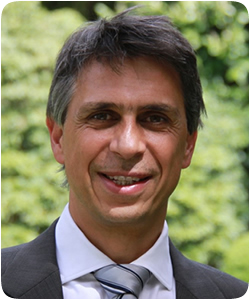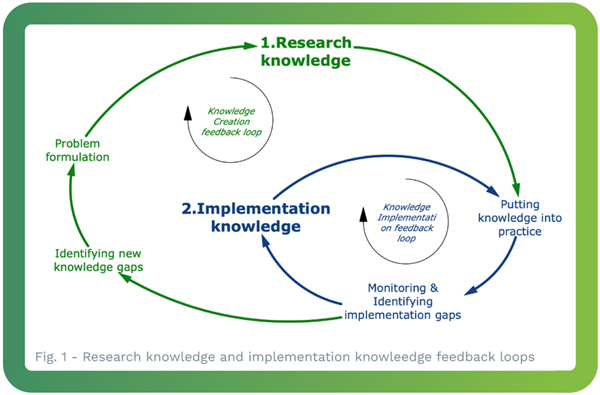 In this late August, one is figuring out how far the state of the world has degraded during the usual summer break. Many of us tried to disconnect, in some cases unsuccessfully, with the hope of pausing time and silencing the almost surreal unfolding events for a while.
In this late August, one is figuring out how far the state of the world has degraded during the usual summer break. Many of us tried to disconnect, in some cases unsuccessfully, with the hope of pausing time and silencing the almost surreal unfolding events for a while.
The Mediterranean region, where I spent some days, was still somehow inspiring what could resemble past paradise. But temperatures were persistently unsustainable. Wildfires were monstrous, also impacting historically humid regions. Water shortages across Europe hit agricultural output but also halted as diverse sectors as power generation or fluvial transport. Food insecurity is growing in the Global South.
Even as the planet is literarily burning under our feet, the ultimate window of opportunity for world nations to pull their acts together and avoid inevitable climate chaos, superpowers are multiplying rhetorical confrontations and provocative military demonstrations instead. And the website of the 27th Conference of the Parties (COP27), due to take place in November in Sharm-El Sheik, Egypt, remains dramatically void.
Is COP 27 still on?
Meanwhile, dirt still flies high as the war roars through Ukraine, which, beyond the tragic human toll, fundamentally reshuffles the post-cold war geopolitical order, announcing the end of multilateralism and the so-called "dividends of peace". The world has changed.
Europe is additionally facing an unprecedented challenge. Beyond its profound geopolitical implications, the invasion of Ukraine by Russian forces unveiled Europe’s tragic dependency on Russian fuel imports, which for gas, represented 40% of its demand, crucial for power generation, domestic heating, and industrial use.
In the EU political response to the Russian aggression, REPowerEU - the EU blueprint for emancipating the bloc from Russian fuels dependency - stands as a highly remarkable strategy to accelerate the transformation of the entire EU energy system.
If REPowerEU can only be praised for its highly ambitious targets, applying simple maths and basic reality checks shows how assumptions seem highly over-optimistic. This only highlights the unprecedented severity of the challenge Europe – its institutions, its governments, and its citizens – will face in the coming months and years and how hazardous the path to a more auspicious future will be.
In this worrying context, the European Energy Research Alliance (EERA) reaffirms its strategic energy and climate advisory role to EU policymakers. Resulting from a broad consultation across a range of leading scientific experts, EERA will soon release its "Research & Innovation Manifesto on REPowerEU" at the High-Level Policy Conference "REPowering Europe for a sustainable EU strategic autonomy" to take place on 19 October 2022 in Brussels.
The Manifesto provides a critical analysis of measures proposed under the REPowerEU strategy to highlight its perceived shortfalls and propose complementary actions to secure and, where possible, bolster its expected impact.
Creating excellent research knowledge for designing new technologies has been the historical role of EERA, generating a continuous flow of technological and social innovations for reaching the EU’s long-term objectives of climate neutrality by 2050.
The analysis was carried out under the conceptual and methodological framework of the EERA White Paper on the Clean Energy Transition. Once more, it highlighted the very intricate and intertwined nature of the energy transition that can only be addressed from a fundamentally holistic, systemic, and cross-sectoral perspective.
REPowerEU or REEnergiseEU?
A fundamental observation of EERA's work resides in that, although it is commonly accepted that the decarbonisation of our economy will vastly rely on higher electrification supported by clean power generation, electricity still only represents less than 25% of the final energy consumption in Europe. The EERA Manifesto highlights the enormous importance of scrutinising heating and cooling, which still represents about 50% of the EU's total energy demand. This is even more true considering the likely prolonged scarcity of gas, as about 35% of gas demand is used for space heating and 23% for industrial applications.
Managing compressed time horizons: designing new technologies earlier, deploying existing technologies faster.
Radically transforming the energy system in just a few years, which usually deals with cycle times of several decades, can only remain a vastly underestimated challenge.
It is commonly accepted that half of carbon abatements to occur after 2030 will have to be provided by technologies that are not yet on the market today. Therefore, the EU must speed up its research and innovation output to deliver the range of new technologies that will help support the decarbonisation effort further down to climate neutrality at a much faster pace. At the same time, reducing the EU’s dependency on critical minerals, technologies and components that need to be sourced offshore is core to building its strategic autonomy.
But first and foremost, REPowerEU mandates an unprecedented acceleration of the short-term deployment of a range of available low-carbon technologies. Sensibly accelerating their deployment rate remains conditioned by the numerous bottlenecks of their global supply chains, broken under the combined effect of the pandemic, the commodity price crisis, and the increasing geopolitical tensions. All of the above is vastly out of the control of EU institutions and governments. At the EU bloc scale alone, the availability of the range of skilled workforce required downstream the supply chain (planning, sourcing, financing, installing, operating, maintaining, etc.) will equally constitute a major limitation to any significant deployment acceleration.
Recognising this double pressure on EU Research and Innovation capabilities, the European Energy Research Alliance recognises and endorses its role in accelerating the implementation of existing knowledge and scaling up already validated solutions. EERA will bolster such a contribution in generating implementation knowledge by studying and advising on the conditions for faster and more efficient implementation of existing knowledge and solutions. Fig. 1 illustrates this dual role of research showing how the research knowledge and implementation knowledge loops work and interact in a complementary way.

Embracing the era of sobriety, "Hic et Nunc."
"Drastically reducing energy demand" was a key policy recommendation of the EERA White Paper on the Clean Energy Transition released just a year ago. This recommendation could not be more premonitory of the absolute imperative we are facing here and now. Today, weaning the EU from its dependence on Russian fossil fuels and avoiding a collapse of its social and economic model dictates us to deeply cut our energy consumption in all sectors, mainly those fuelled by gas, such as space heating, industry, and electricity, since about a third of EU power is generated from gas.
At the time of writing this article, gas trade in the EU is above 320 €/ MWh, i.e. a sixteen-fold increase compared to last year's spring. Under these conditions, heating and electricity bills will be unaffordable for most EU citizens, compromising the EU’s social stability. Moreover, industrial activity will collapse, driving the EU economy to contract, while supply-generated inflation will create stagflation conditions. One can also anticipate that the highly contrasting situation for different member states might generate unprecedented political tensions within the Union. Only if demand reduction can dry out the EU's dependency on Russian gas might we get energy prices back in control and avoid the devastating effects of the current energy crisis.
Two years ago, in the European Energy Innovation summer edition, I alerted that reaching the Paris Agreement targets would require us to decrease global emissions by about 8% yearly. This was before a conflict started at the EU doors, bringing much of what we knew about the energy system under question. Should we not increase the ambition of our goals, achieving the EU’s recommended 15% reduction in gas consumption would only entail less than a 4% decrease in CO2 emissions.
However, most important than the numbers is that to do this, we must be conscious that there are privileges we will need to give up in order to obtain what we aim for, which is critical in our path to carbon neutrality and strategic autonomy objectives. Unavoidable pillars of our strength as not only an economic bloc but as a referential social model. The era of sobriety has started.
 The EERA "Research & Innovation Manifesto on REPowerEU" will be officially released at the occasion of the highlevel policy conference "REPowerEU for an EU sustainable strategic autonomy" that will take place on October 19 in Brussels and online.
The EERA "Research & Innovation Manifesto on REPowerEU" will be officially released at the occasion of the highlevel policy conference "REPowerEU for an EU sustainable strategic autonomy" that will take place on October 19 in Brussels and online.
For further information and registrations please scan the QR code next to this box.
About EERA
The European Energy Research Alliance (EERA) is the association of European public research centres and universities active in low-carbon energy research. EERA pursues the mission of catalysing European energy research for a climate-neutral society by 2050. Bringing together more than 250 organisations from 30 countries, EERA is Europe's largest energy research community. EERA coordinates its research activities through 18 Joint Programmes and is a key stakeholder in the European Union's Strategic Energy Technology (SET) Plan. In line with its mission, EERA is committed to supporting Europe in achieving a successful energy transition in line with the EU's climate 2050 goals and Paris commitments.
For further information, see https://www.eera-set.eu
Email: a.elgammal@eera-set.eu
LinkedIn